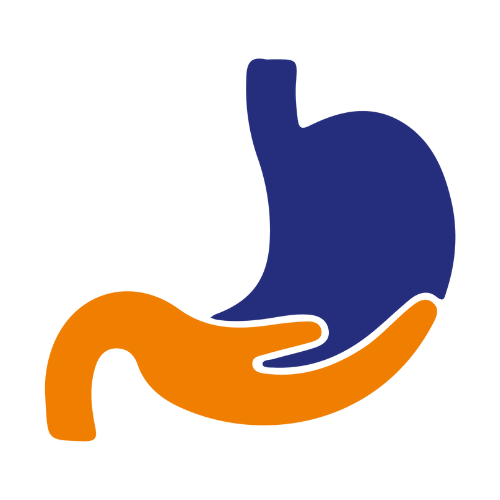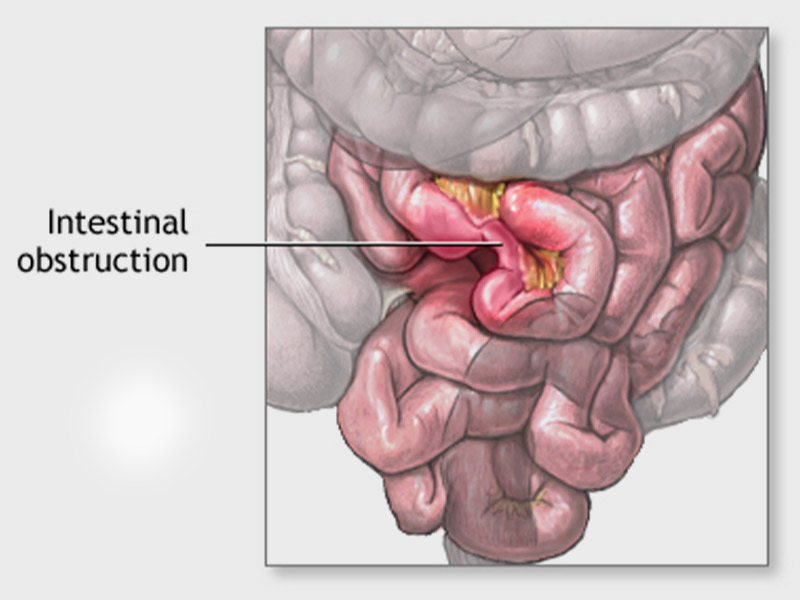Intestinal Obstruction
An intestinal obstruction means that something is blocking your intestine. Food and stool may not be able to move freely.
When your intestine works normally, digested food moves from your stomach to your rectum. Along the way, your body breaks food down into usable parts and turns the rest to feces (stool). You eventually eliminate it through a bowel movement.
An intestinal obstruction may partially or completely block this natural process. A complete blockage is an emergency and needs medical attention right away.
What are the Symptoms?
Signs and symptoms of intestinal obstruction include:
- Crampy abdominal pain that comes and goes
- Loss of appetite
- Constipation
- Vomiting
- Inability to have a bowel movement or pass gas
- Swelling of the abdomen
- Loud sounds from your belly
What are the Causes?
Among the many possible causes for an intestinal obstruction are:
- Abdominal adhesions: These are growths of tissue in bands that may force your intestines out of place.
- Hernia: A hernia is a split in the muscle wall of your abdomen. Hernias can cause bulges and pockets. These may block your intestine.
- Volvulus: A volvulus happens when part of your intestine twists around itself. This creates a blockage.
- Intussusception: This condition means that a segment of your intestine slides into another segment. This narrows but may not block your intestine.
- Scarring: When your body heals small cuts (wounds), scar tissue forms. This can happen inside your intestine as well. These scars can build up and create partial or total intestinal blockages. Scarring can result from tears in your intestinal wall, belly (abdominal) or pelvic surgery, or infections.
- Inflammatory bowel disease: Crohn’s disease and ulcerative colitis are 2 examples.
- Diverticulitis: Tiny pouches (diverticulae) can grow off the large intestine lining. These may become inflamed.
- Tumors: Growths may be cancer or harmless (benign). Either way, they can block your intestine completely or partially.
- Foreign objects: Nonfood objects that you swallow on purpose or accidentally may cause partial or complete intestinal obstruction.
- Meckel diverticulum: About 2 in 100 people are born with this additional small pouch inside the intestine.
How is it Diagnosed?
Your Doctor will give you a physical exam. You may also need certain tests. These may include:
- Abdominal X-ray
- Barium contrast study
- CT scan
- MRI
- Contrast fluoroscopy
What are the Risk Factor?
Diseases and conditions that can increase your risk of intestinal obstruction include:
- Abdominal or pelvic surgery, which often causes adhesions — a common intestinal obstruction
- Crohn’s disease, which can cause the intestine’s walls to thicken, narrowing the passageway
- Cancer in your abdomen
Untreated, intestinal obstruction can cause serious, life-threatening complications, including:
- Tissue death: Intestinal obstruction can cut off the blood supply to part of your intestine. Lack of blood causes the intestinal wall to die. Tissue death can result in a tear (perforation) in the intestinal wall, which can lead to infection.
- Infection: Peritonitis is the medical term for infection in the abdominal cavity. It’s a life-threatening condition that requires immediate medical and often surgical attention.
How is it Treated?
The treatment your healthcare provider recommends will depend on what is causing the blockage. For a simple blockage you may need to have only fluids and no solids to eat. Your provider will work to fix any metabolic problems. You may have an intestinal decompression. This is usually done with a nasogastric tube. You may also have bowel rest.
You will need surgery right away if your intestinal obstruction is more complicated. This could be from a tear (perforation) in the intestine or a problem with blood flow. You may also need surgery if other treatment does not remove the blockage. The goal is to remove the blockage and repair your organs.
Your provider also might recommend using a small, flexible tube to keep your intestine open, instead of having more invasive surgery.

